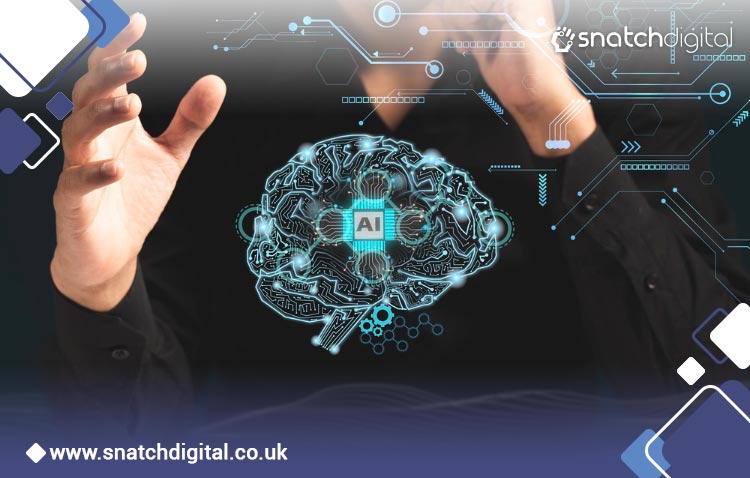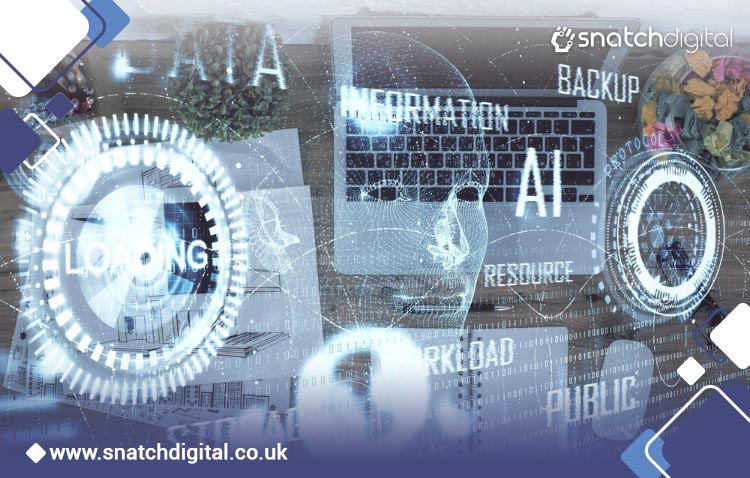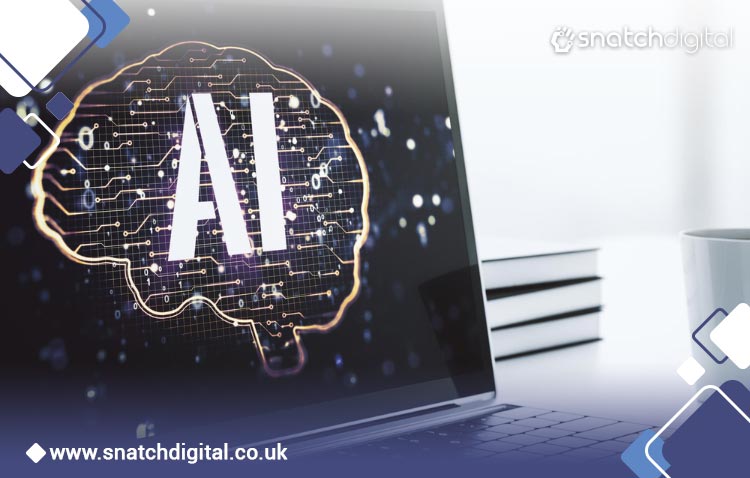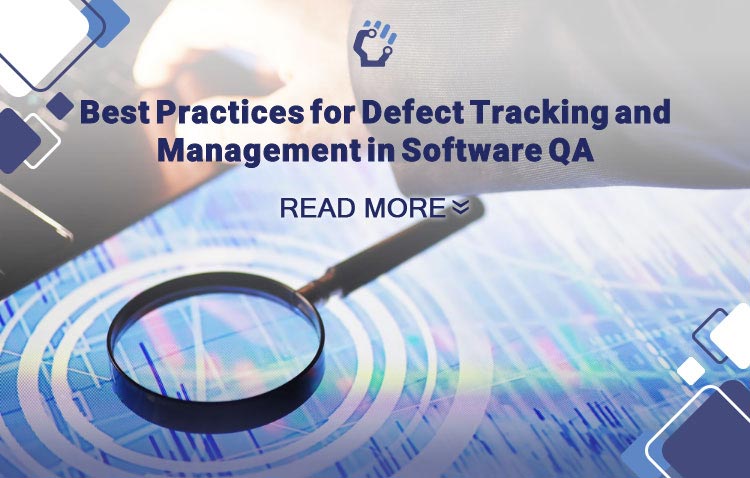In the ever-evolving landscape of software development and quality assurance, the integration of Artificial Intelligence (AI) has become a game-changer. "AI in Software Testing" is not just a buzzword but a transformative force shaping how we ensure the reliability and functionality of digital applications. As technology continues to advance at an unprecedented pace, AI has emerged as a powerful ally in streamlining and enhancing the quality assurance process. In this exploration of "AI in Software Testing," we will dive into the profound impact of AI and Machine Learning on the world of QA, uncovering how these cutting-edge technologies are redefining the way we test, validate, and deliver software solutions. From automated testing tools to predictive defect detection, join us on this journey to uncover the present and future possibilities of AI in ensuring software quality.
AI-Powered Test Automation Tools
In the realm of software testing, the emergence of AI-powered test automation tools has brought about a revolution. These tools, harnessing the capabilities of Artificial Intelligence (AI), have become indispensable in modern quality assurance processes. AI-powered test automation tools go beyond traditional test automation by leveraging machine learning algorithms to enhance testing efficiency and accuracy.
These tools are designed to learn from test data, identify patterns, and make intelligent decisions, all while continuously adapting to changing test scenarios. They excel in repetitive and data-driven test cases, allowing QA teams to allocate their time and expertise to more complex testing challenges.
One of the key advantages of AI-powered test automation tools is their ability to provide rapid feedback. They can execute tests at scale, significantly reducing the time required for test execution and analysis. Moreover, they are adept at detecting anomalies and potential issues, aiding in early bug detection.
AI-driven test automation tools are also known for their self-healing capabilities. When changes occur in the application under test, these tools can automatically adjust test scripts to accommodate those changes, minimizing the need for manual script maintenance.
Additionally, these tools often come equipped with advanced reporting and analytics features, offering valuable insights into test coverage, performance, and the overall quality of the software.
As organizations strive to deliver software faster and with higher quality, AI-powered test automation tools have become essential components of their testing arsenals. They not only reduce testing cycles but also enhance the reliability of software products, making them a valuable asset in the pursuit of excellence in software testing.
Benefits of AI in Software Testing
The integration of Artificial Intelligence (AI) into the realm of software testing has ushered in a myriad of benefits, transforming how quality assurance is conducted in the digital age. Here are some key advantages of using AI in software testing:
Enhanced Test Coverage
AI-driven testing tools have the capability to execute a vast number of test cases rapidly. This means that a wider range of scenarios can be tested, improving overall test coverage and the likelihood of identifying defects.
Faster Test Execution
AI-powered testing tools can significantly accelerate the test execution process. They can handle repetitive and time-consuming tasks with efficiency, reducing the time required for testing cycles.
Improved Accuracy
AI algorithms are designed to make data-driven decisions. This results in more accurate test results and a reduced margin for human error. Test outcomes are dependable and consistent.
Early Defect Detection
Machine learning models can analyze historical data to identify patterns and anomalies. This can lead to early detection of potential defects, allowing developers to address issues before they escalate.
Resource Optimization
By automating repetitive testing tasks, AI frees up QA teams to focus on more complex and creative aspects of testing. This optimizes resource allocation and enhances productivity.
Continuous Testing
AI can facilitate continuous testing in DevOps and CI/CD pipelines. Tests can be executed automatically whenever there are code changes, ensuring that software quality is maintained throughout the development lifecycle.
Cost Efficiency
While there may be an initial investment in AI testing tools, the long-term cost benefits are significant. Faster testing, reduced manual effort, and fewer post-release issues result in cost savings.
Self-Learning
AI-powered tools can adapt to changes in the application and testing environment. They learn from each test cycle, making them more effective over time without constant reprogramming.
Data-Driven Insights
AI-generated analytics and reports provide valuable insights into the quality of the software. This data can inform decision-making, help prioritize testing efforts, and contribute to overall software improvement.
Competitive Advantage
Organizations that leverage AI in software testing can deliver high-quality products faster, gaining a competitive edge in the market and meeting customer expectations more effectively.
In summary, AI in software testing offers a multitude of benefits, ranging from improved test coverage and accuracy to cost savings and competitive advantages. Embracing AI-driven testing tools can lead to more efficient, effective, and reliable quality assurance processes.
Read more: How to Conduct Effective Regression Testing for Software Stability?

Challenges and Limitations of AI in QA
While Artificial Intelligence (AI) has brought remarkable advancements to the field of Quality Assurance (QA), it is not without its share of challenges and limitations. Understanding these complexities is crucial for harnessing the full potential of AI in QA effectively. Here, we delve into the key challenges and limitations:
1. Data Quality and Quantity: AI relies heavily on data for training and decision-making. Insufficient or poor-quality data can hinder the performance of AI models. Ensuring a robust data infrastructure and quality data inputs remains a challenge.
2. Overfitting: AI models can become too specialized and overly tailored to the training data, leading to overfitting. This can result in models that perform well on training data but struggle with real-world variability.
3. Interpretability: AI algorithms, particularly deep learning models, can be highly complex and difficult to interpret. Understanding why a model makes a specific decision can be challenging, which can be a concern in safety-critical applications.
4. Bias and Fairness: AI models can inherit biases present in the training data, potentially leading to unfair or discriminatory outcomes. Ensuring fairness and mitigating bias is an ongoing challenge in AI development.
5.Lack of Domain Knowledge: AI models may not possess domain-specific knowledge, making it challenging to understand context or make domain-specific decisions accurately.
6. Cost of Implementation: Developing and implementing AI solutions for QA can be expensive, requiring skilled personnel, computational resources, and ongoing maintenance.
7. Security Concerns: AI models can be vulnerable to adversarial attacks and security breaches. Ensuring the security of AI-powered QA systems is a critical concern.
8. Human-AI Collaboration: Determining the optimal balance between human testers and AI-powered tools can be complex. There is a learning curve involved in integrating AI into existing QA processes.
9. Regulatory Compliance: Adhering to data protection and privacy regulations, such as GDPR, while using AI in QA can be challenging due to the need to handle sensitive data.
10. Scalability: Scaling AI-powered QA solutions to accommodate growing software projects and dynamic environments can be a logistical challenge.
11. Tool Selection: Choosing the right AI-powered QA tools or frameworks that align with specific project requirements and budgets can be a decision fraught with complexity.
12. Ethical Considerations: Addressing ethical concerns related to AI, such as the responsible use of AI in testing and ensuring transparency in decision-making, is an ongoing challenge.
In navigating these challenges and limitations, organizations can develop strategies that maximize the benefits of AI in QA while mitigating potential risks. This may involve continuous training and validation of AI models, adopting ethical guidelines, investing in data quality, and fostering collaboration between AI experts and domain-specific QA professionals. Recognizing and addressing these challenges is essential to harnessing the full potential of AI in the realm of software quality assurance.

AI-Enhanced Test Case Generation
In the dynamic landscape of software testing, the advent of Artificial Intelligence (AI) has ushered in a paradigm shift in test case generation. This innovative approach harnesses the power of AI to automate and optimize the creation of test cases, revolutionizing how software quality assurance is conducted.
AI-enhanced test case generation involves the application of machine learning algorithms to analyze the application's behavior, codebase, and historical data. Here's how it works and the benefits it brings to the QA process:
1. Automated Scenario Identification
AI algorithms can automatically identify critical test scenarios by analyzing the application's functionalities and user interactions. This reduces the manual effort required to determine what needs to be tested.
2. Improved Test Coverage
AI-driven test case generation tools can explore a vast number of test scenarios, increasing test coverage. This is especially valuable in complex software applications where manually creating test cases for every possible scenario is impractical.
3. Dynamic Test Case Maintenance
As the software evolves, AI-enhanced tools can adapt test cases to accommodate changes in the codebase. This self-healing capability minimizes the need for frequent manual test case updates.
4. Data-Driven Testing
AI can generate test data or scenarios based on historical data patterns. This not only streamlines test case creation but also ensures that tests reflect real-world usage.
5. Faster Test Case Generation
AI-powered tools significantly accelerate test case creation, reducing the time required for test preparation and execution.
6. Enhanced Test Prioritization
AI can analyze factors such as code changes, defect history, and user behavior to prioritize test cases. This ensures that high-impact areas are thoroughly tested.
7. Complex Scenario Exploration
AI can uncover complex edge cases and boundary conditions that are often overlooked in manual test case creation. This helps identify critical defects early in the development process.
8. Reduced Manual Error
By automating test case generation, the risk of human error is minimized. Test cases are consistently generated following predefined criteria.
9. Resource Optimization
QA teams can focus their expertise on more strategic aspects of testing, such as exploratory testing and usability assessments, while AI handles the routine test case generation tasks.
10. Continuous Testing
AI-enhanced test case generation aligns seamlessly with continuous integration and continuous delivery (CI/CD) pipelines, enabling continuous testing and rapid feedback loops.
In summary, AI-enhanced test case generation represents a leap forward in software quality assurance. By automating the creation of comprehensive, adaptive, and efficient test cases, AI empowers QA teams to deliver higher-quality software faster. It streamlines the testing process, maximizes test coverage, and helps uncover critical issues earlier in the development cycle, ultimately contributing to the delivery of more reliable and robust software products.
AI for Anomaly Detection and Bug Prediction
In the ever-evolving landscape of software development and quality assurance, the integration of Artificial Intelligence (AI) has paved the way for more proactive and predictive approaches to detecting anomalies and predicting software bugs. This innovative application of AI technology is transforming the way we safeguard software quality and reliability.
1. Anomaly Detection with AI
AI-powered anomaly detection systems are designed to scrutinize software behavior, user interactions, and system performance. These systems employ machine learning algorithms to identify deviations from expected patterns. Here's how AI contributes to anomaly detection:
- Pattern Recognition: AI models can learn normal system behavior and recognize deviations from these patterns, which might indicate anomalies.
- Real-time Monitoring: AI continuously monitors software in real-time, allowing for immediate detection of irregularities that might not be apparent through manual observation.
- Predictive Alerts: AI systems can issue alerts or warnings when anomalies are detected, enabling timely intervention and problem resolution.
2. Bug Prediction with AI
AI's role in bug prediction is equally significant, if not more so. By analyzing historical data, code repositories, and defect reports, AI models can make informed predictions about where potential bugs may arise. Here's how AI contributes to bug prediction:
- Code Analysis: AI algorithms can analyze code changes and identify areas of the codebase that are more likely to introduce defects based on historical patterns.
- Defect History: By examining past defect reports, AI can pinpoint modules or components that have a higher likelihood of encountering issues in the future.
- Prioritization: AI can prioritize potential bug-prone areas, helping development and QA teams focus their testing efforts more effectively.
- Early Warning: AI-driven bug prediction can provide early warnings, allowing teams to proactively address issues before they impact users or enter production.
3. Benefits of AI-Enhanced Anomaly Detection and Bug Prediction
- Proactive Issue Resolution: AI helps organizations move from reactive to proactive bug detection and resolution, reducing the impact of defects on end-users.
- Time and Resource Savings: By directing testing and development efforts to the most critical areas, AI optimizes resource allocation and reduces manual effort.
- Enhanced Software Quality: AI contributes to delivering more reliable and robust software by identifying and mitigating issues early in the development cycle.
- Continuous Improvement: AI models continuously learn from new data, improving their accuracy and effectiveness over time.
AI for anomaly detection and bug prediction represents a significant leap forward in ensuring software quality. By harnessing the power of AI, organizations can minimize the disruption caused by software anomalies and defects, ultimately delivering a better user experience and more dependable software products.
AI-Enhanced Test Case Generation, AI for Anomaly Detection and Bug Prediction, The Future of AI in Quality Assurance.
As we stand at the intersection of technology and quality assurance, the synergy between Artificial Intelligence (AI) and software testing is reshaping the way we approach quality control. From AI-enhanced test case generation to proactive anomaly detection and bug prediction, the future of AI in Quality Assurance (QA) promises to be transformative, empowering organizations to deliver software of the highest caliber.

AI-Enhanced Test Case Generation
The evolution of test case generation is undergoing a seismic shift with the incorporation of AI. AI-powered tools are not only automating the creation of test cases but also optimizing them for comprehensive coverage and adaptability. This evolution brings several benefits, such as:
- Efficiency: AI streamlines test case creation, saving valuable time and resources in the QA process.
- Coverage: AI explores a multitude of test scenarios, ensuring a broader and more thorough coverage of software functionality.
- Self-Adaptation: AI-enabled tools adapt to changes in the software, reducing the need for manual script updates.
AI for Anomaly Detection and Bug Prediction
AI's role in anomaly detection and bug prediction is revolutionary. By analyzing data patterns and code repositories, AI predicts potential anomalies and identifies bug-prone areas with precision. Here's what it brings to the table:
- Proactivity: AI shifts QA from a reactive stance to a proactive one, enabling the identification and resolution of issues before they escalate.
- Resource Optimization: AI directs testing and development efforts to where they are most needed, optimizing resource allocation.
- Enhanced Quality: Early anomaly detection and bug prediction contribute to delivering higher-quality, more reliable software.
The Future of AI in Quality Assurance
The future of AI in QA holds exciting possibilities:
- AI-Driven Test Design: AI may design test cases autonomously, making QA even more efficient and adaptive.
- Predictive QA: AI's predictive capabilities could extend to foreseeing QA bottlenecks and suggesting solutions in real-time.
- AI in Test Reporting: AI-generated reports may offer deeper insights into software quality and testing strategies.
- AI for Accessibility Testing: AI can play a significant role in improving software accessibility, making it more inclusive.
- Ethical QA: AI will be a driving force in ensuring ethical considerations are integrated into QA practices.
The future of AI in QA is a journey into uncharted territory, with limitless possibilities. It will enable organizations to not only produce software faster but also make it more resilient, secure, and user-centric. As AI continues to advance, it will undoubtedly redefine the landscape of Quality Assurance, bringing higher efficiency, accuracy, solving QA challenges, and innovation to the forefront of software development.








